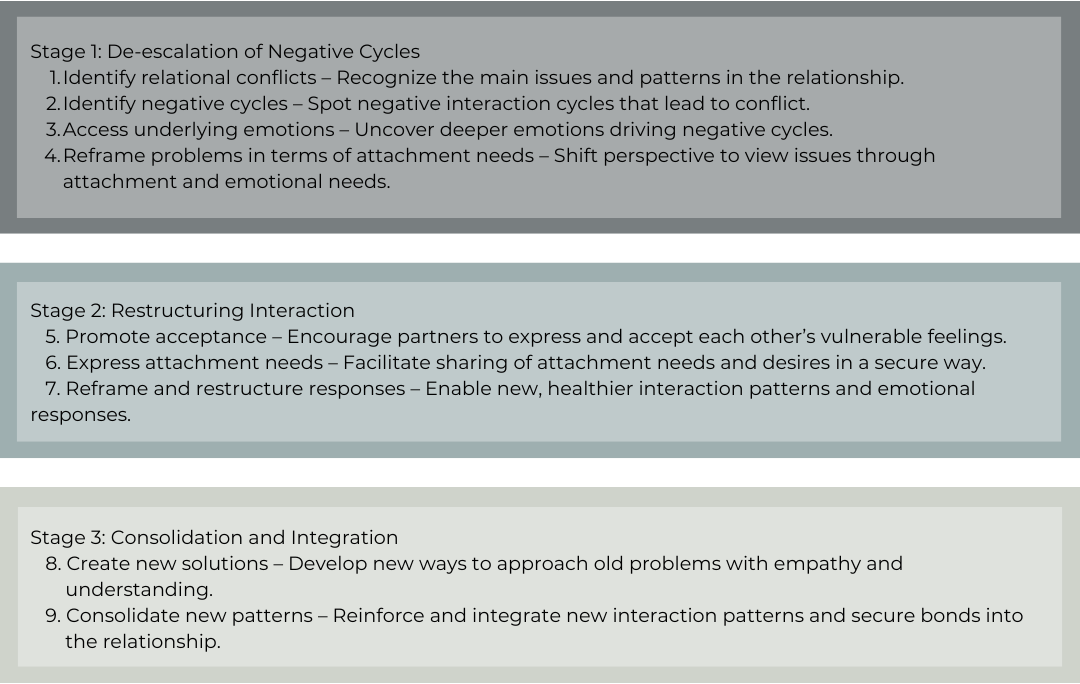
Emotionally Focused Therapy (EFT) is a well-researched and highly effective therapeutic approach that focuses on understanding and improving emotional connections with oneself and others. Developed in the 1980s, it emphasizes the importance of emotions in shaping our experiences and relationships. EFT helps individuals establish a secure sense of self, which supports healthier and more fulfilling bonds with others.
EFT is versatile, being used for couples (EFCT), individuals (EFIT), and families (EFFT). It helps with issues like depression, anxiety, trauma, and strained relationships by focusing on emotions and how to manage them. Rather than offering quick fixes, EFT works to create lasting change through a structured process, with three key stages of therapy mapped out for success.
With over 30 years of empirical support, EFT is considered a gold standard in the field. It’s collaborative and helps clients understand their emotions, build stronger connections, and improve their emotional well-being, making it a transformative option for anyone looking to enhance their personal and relational life.

Emotionally Focused Couples Therapy (EFCT) is a short-term, structured therapy (8 to 20 sessions) developed in the 1980s based on attachment theory. It combines humanistic, experiential techniques to reshape emotional experiences and systemic methods to restructure relationship dynamics. Extensive research shows that EFCT leads to significant, lasting improvements, and it is used successfully with a wide range of couples, including those dealing with depression, trauma-related anxiety, medical issues, and forgiveness challenges. EFCT is applied across diverse cultural groups and couples, including same-sex couples, worldwide.
The primary goals of EFCT are to:

Emotionally Focused Individual Therapy (EFIT) is an attachment-based approach designed to reshape both inner emotional experiences and relational patterns. Like EFCT for couples and EFFT for families, EFIT prioritizes emotion, recognizing its powerful role in shaping personal experience, motivation, and relationship dynamics. This approach helps individuals make sense of their emotions and interactions, linking core experiences with how they engage with others and their younger selves.
The goals of EFIT are to:

“If you’re looking to deepen your personal connections, manage emotional challenges, strengthen your sense of self as a confident and competent person, and improve your family or romantic relationships, Emotionally Focused Therapy will be a transformative choice. It’s about building stronger connections, understanding self and each other better, and fostering emotional health, all of which are key to a happier, more fulfilling life.”
– taken from ICEEFT.com